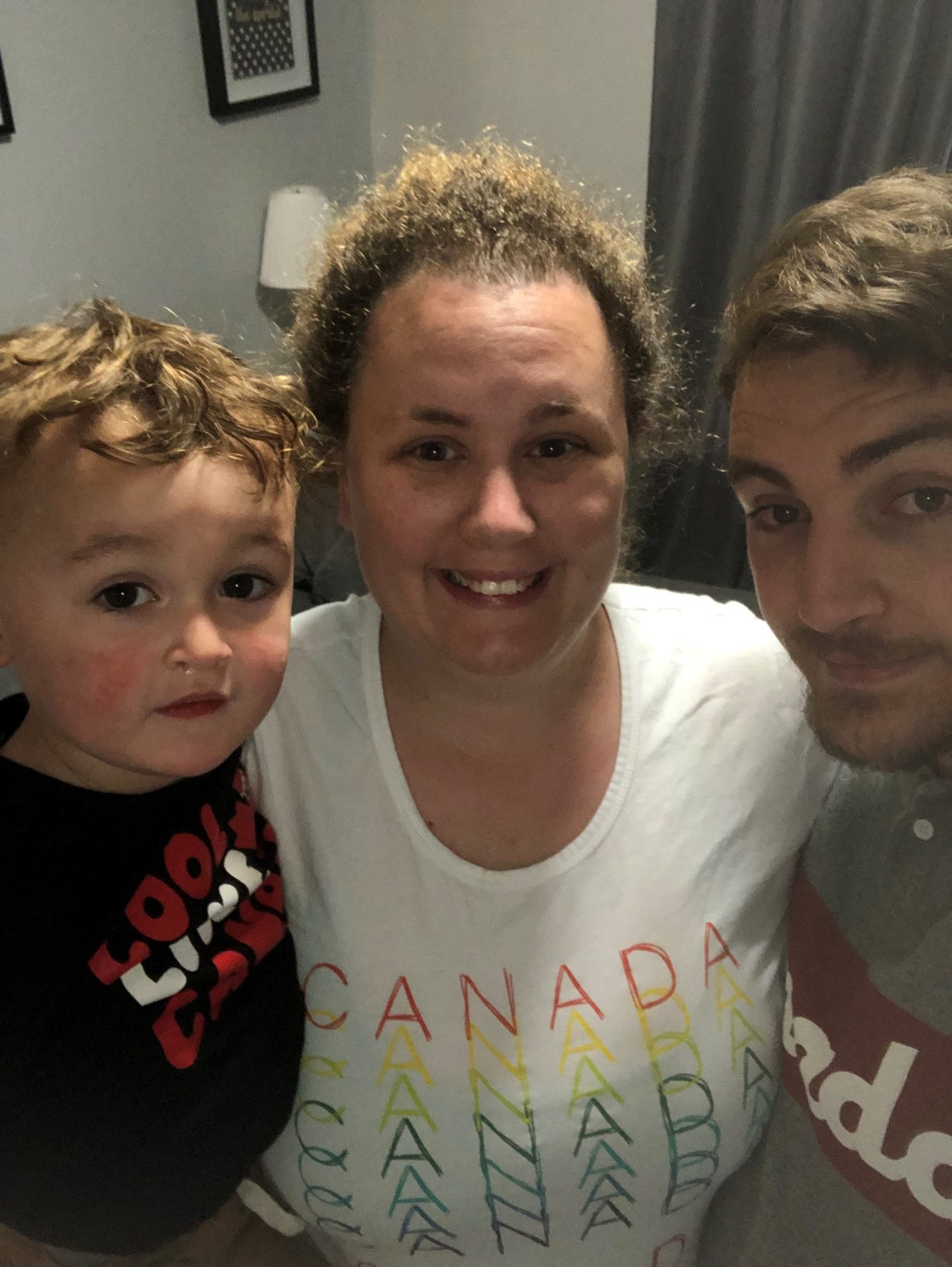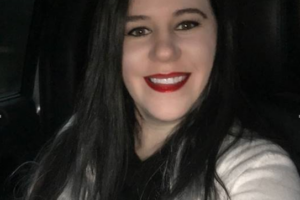I am a registered nurse, but that didn’t help me spot my issue. I was working a shift, and I felt very run down and tired. I thought maybe I was catching the flu. My left leg felt kind of tingly like my foot was asleep, and I had some pain in my groin, which I just attributed to being sick or tired.
I finished work, and as I was walking out. I was talking to my husband, who was walking to the car with me, and I realized that I was so out of breath I couldn’t carry on a conversation. Again, I did not think much of it, and I certainly did not think it was blood clots, because I was 26 years old and had no risk factors. I was not taking birth control, I did not smoke or use drugs or alcohol, and I was fairly active.
Later that day, things got worse. I woke up and could hardly breathe. It felt like my leg was “asleep,” but I didn’t clue in. When I actually looked at myself, my whole leg was nearly black. I went to the ER and they found extensive clotting, from my ankle to my belly button, as well as three pulmonary embolisms, or blood clots in my lungs. They figured out it might be the result of May-Thurner Syndrome, after first exploring the thought that I maybe had a tumor pressing down on thighs in my pelvis, which I did not have. I was admitted, started on a heparin drip, and later heparin injections.
I was raced to another hospital after my pedal pulse (pulse on top of foot ) was lost, and I had three surgeries to vacuum out the clots. Stents were placed, along with a clot-busting drip, directly into my leg, to help break things up. For those surgeries, I had a sheath inserted into the back of my leg, and I had to stay flat on my stomach for two days. It was very painful.
I was in the ICU for a while, and then I returned home to recover. Now, just over a year later, I am still recovering and dealing with chronic lung infections. Some of the finer vessels in my lungs have been destroyed, and I am working on building up stamina. It was terrifying to be on the other side of the hospital bed, and I certainly have a lot more empathy for my patients now. Never brush off things that are happening in your body. It isn’t always “nothing,” as we tend to think about ourselves, especially being a nurse.
MORE INFORMATION AND RESOURCES:
- Join our online peer support community to connect with other people who have experienced a blood clot.
- Read more about blood clot recovery and lifestyle issues: Personal Perspectives: My Blood Clot, My Life
- Read more stories, or share your story with NBCA.




